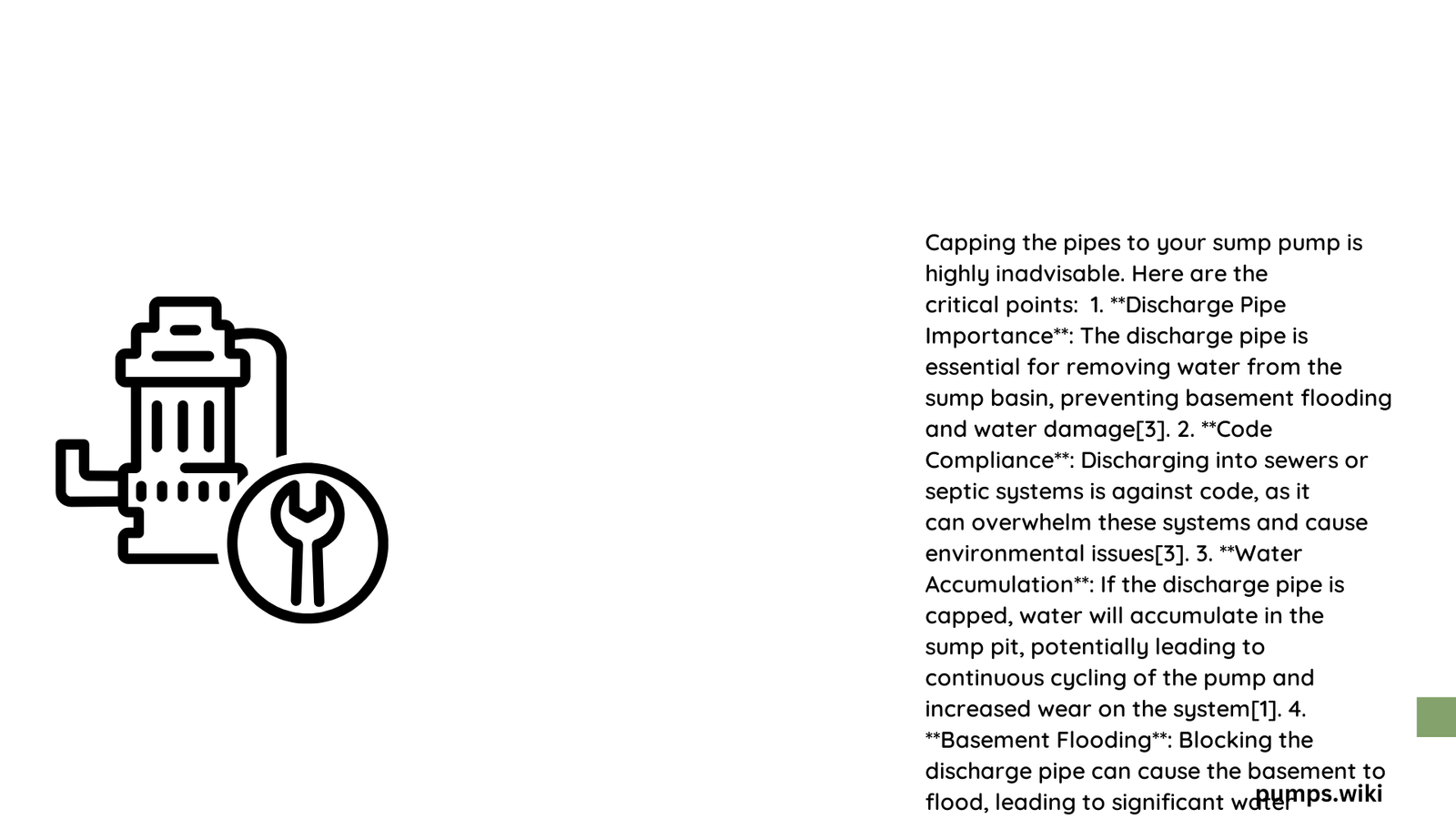Homeowners often wonder about modifying their sump pump discharge systems, but capping pipes is a critical mistake that can lead to severe water damage, potential foundation issues, and costly repairs. Understanding the legal, technical, and safety implications of sump pump discharge pipe management is essential for protecting your property and maintaining an effective water management system.
What Happens If You Cap Sump Pump Pipes?
Capping sump pump pipes is universally discouraged by professionals and local building codes. Here’s why:
Can Blocking Discharge Pipes Cause Basement Flooding?
Absolutely. When you cap sump pump pipes, you create a dangerous scenario:
- Water Accumulation: No exit path for collected water
- Pump Failure: Continuous cycling without drainage
- Structural Risk: Potential foundation and basement damage
| Consequence | Potential Damage | Estimated Repair Cost |
|---|---|---|
| Minor Water Damage | $500 – $1,500 | Moderate Risk |
| Significant Flooding | $5,000 – $25,000 | High Risk |
| Foundation Damage | $10,000 – $50,000 | Extreme Risk |
What Are Legal Implications of Capping Sump Pump Pipes?
Most jurisdictions strictly prohibit pipe capping:
- Building Code Violations
- Potential Fines
- Insurance Claim Rejection
- Mandatory System Reconstruction
How Should Sump Pump Discharge Pipes Be Managed?
Instead of capping, consider these professional recommendations:
Proper Discharge Pipe Installation
- Use durable materials like PVC or ABS
- Ensure downward slope for gravity drainage
- Install backflow prevention mechanisms
- Maintain minimum 10-foot distance from foundation
- Add protective screens at discharge point
What Technical Challenges Exist with Sump Pump Pipes?
Technical considerations include:
- Pipe Diameter: Minimum 1.5 inches recommended
- Material Durability: UV and temperature resistant
- Slope Gradient: Minimum 2% downward slope
- Freeze Protection: Insulation or underground routing
Can Professionals Help with Sump Pump Pipe Management?
Professional intervention offers:
- Comprehensive system assessment
- Code-compliant installation
- Custom drainage solutions
- Long-term maintenance strategies
Key Takeaways

- Never Cap Sump Pump Pipes
- Follow Local Building Codes
- Prioritize Proper Water Management
- Consult Professionals for Complex Scenarios
Cost Considerations
Typical professional sump pump discharge pipe installation ranges:
– Basic Installation: $350 – $750
– Complex Systems: $1,000 – $3,000
– Emergency Repairs: $2,500 – $10,000
Conclusion
Capping sump pump pipes is a dangerous practice with potentially catastrophic consequences. Prioritize professional guidance, maintain proper drainage, and invest in your home’s water management infrastructure.
